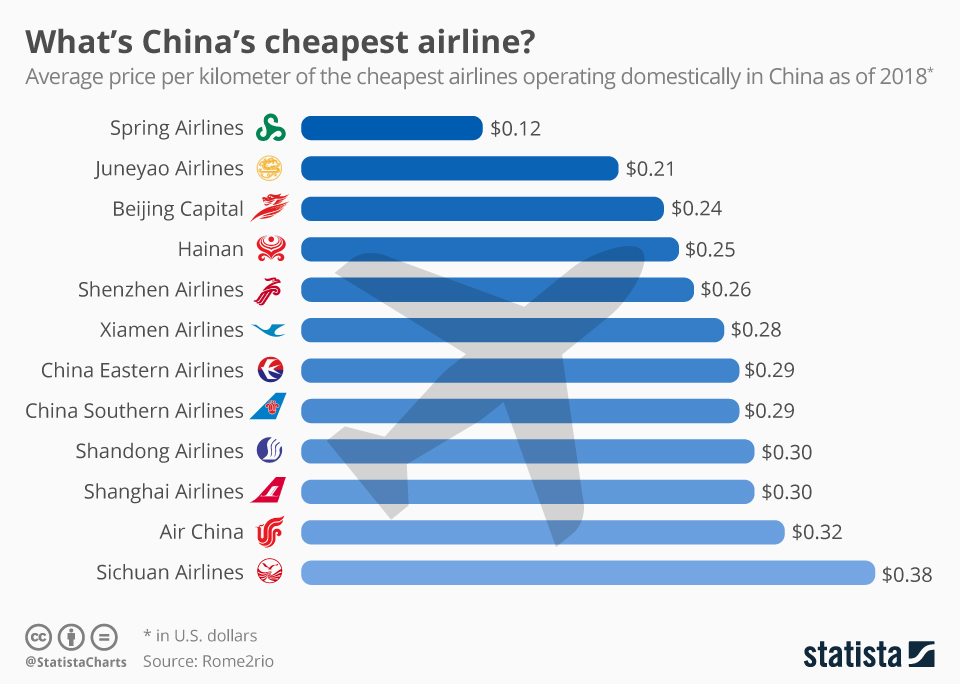
The allure of China, a land steeped in millennia of history, boasting breathtaking landscapes, and pulsating with modern energy, has captivated travelers for centuries. From the majestic Great Wall to the futuristic skylines of Shanghai, the Middle Kingdom offers an unparalleled tapestry of experiences. Yet, for many, the perceived cost of a journey to China can be a formidable barrier. Fear not, intrepid explorer! This comprehensive guide will demystify the process of finding cheap flights to China, unlock its top attractions, delve into its rich history, equip you with essential travel tips, explore accommodation and transportation options, and pinpoint the best times to embark on your affordable adventure.
Finding Your Dragon’s Ticket: The Art of Cheap Flights to China
Securing affordable airfare to China is an art form, blending flexibility, timing, and strategic booking. Here’s how to become a master:

Related Articles about Unlocking the Dragon’s Lair: Your Guide to Affordable Adventures in China:
- The Bohemian Rhapsody: A Comprehensive Guide to Traveling in the Czech Republic
- Hungary’s Regal Retreats: Unveiling the Best Hotels and the Enchantment of a Nation
- Oman: A Tapestry of Ancient Wonders and Modern Luxuries
- Slovenia: A Jewel Box of Natural Wonders and Cultural Treasures
- Bulgaria’s Crown Jewels: Unveiling the Best Hotels Amidst Ancient Wonders and Modern Comforts
- Embrace Flexibility with Dates and Times: This is the golden rule of cheap travel. If your travel dates are flexible, you can often find significant savings. Mid-week flights (Tuesdays and Wednesdays) are generally cheaper than weekend departures. Flying during the shoulder seasons (spring and autumn) is also a smart move. Avoid major Chinese holidays like the Lunar New Year (Spring Festival) and Golden Week (early October), as prices skyrocket and destinations become crowded.
- Be Open to Different Airports: China has a vast network of international airports. While Beijing Capital International Airport (PEK) and Shanghai Pudong International Airport (PVG) are the most common entry points, consider flying into other major cities like Guangzhou (CAN), Chengdu (CTU), or even Hong Kong (HKG) and then taking a domestic flight or high-speed train. Sometimes, a slightly longer layover can translate into substantial savings.
- Leverage Flight Comparison Websites: Tools like Skyscanner, Google Flights, Kayak, and Momondo are your best friends. Set up price alerts for your desired routes to be notified of any drops. Don’t just check one; compare prices across multiple platforms.
- Consider Budget Airlines and Layovers: While not always the most comfortable, budget airlines can offer significant savings. Look for airlines that operate within Asia and connect to major Chinese hubs. Be aware of layover durations and locations; a long layover in a less expensive city can be a trade-off for a cheaper ticket.
- Book in Advance (But Not Too Far): The sweet spot for booking international flights is typically 2-6 months in advance. Booking too early might mean missing out on promotional deals, while booking too late guarantees higher prices.
- Explore Different Departure Cities: If you have the flexibility to depart from a different city in your home country, compare prices. Sometimes, a short domestic flight to a larger international hub can be cheaper than flying directly from your local airport.
- Look for Package Deals: Occasionally, flight and hotel packages can offer better value than booking separately. Explore travel agencies and online travel platforms for these options, especially during off-peak seasons.

A Glimpse Through the Ages: China’s Rich History
China’s history is a sprawling epic, a testament to human ingenuity, cultural evolution, and imperial grandeur. From its mythical origins to its modern resurgence, understanding this history enriches every travel experience.
- Ancient Civilizations (c. 2100 BCE – 221 BCE): The cradle of Chinese civilization lies in the Yellow River valley, where dynasties like the Xia, Shang, and Zhou laid the foundations for its cultural and political systems. This era saw the development of early writing, bronze casting, and sophisticated agricultural practices.
- Imperial Dynasties (221 BCE – 1912 CE): This is the longest and most impactful period. The Qin Dynasty unified China for the first time, laying the groundwork for a centralized imperial system. The Han Dynasty ushered in an era of prosperity, cultural flourishing, and the expansion of the Silk Road. Subsequent dynasties like the Tang (golden age of poetry and art), Song (technological innovation), Yuan (Mongol rule), Ming (Great Wall fortification and Forbidden City construction), and Qing (last imperial dynasty) each left their indelible mark.
- The Republic of China (1912 – 1949): The overthrow of the Qing Dynasty marked the end of imperial rule and the tumultuous beginnings of a republic. This period was characterized by warlordism, civil war, and Japanese invasion.
- The People’s Republic of China (1949 – Present): The Communist Party, led by Mao Zedong, established the People’s Republic of China. This era has witnessed significant transformations, including the Great Leap Forward, the Cultural Revolution, economic reforms, and China’s emergence as a global superpower.
Unveiling the Dragon’s Treasures: Top Attractions in China
China’s sheer size and diversity mean that a single trip can only scratch the surface. Here are some must-see attractions that offer a compelling introduction to its wonders:
- The Great Wall of China (Various Sections): An undisputed icon, this colossal defensive structure stretches for thousands of miles. Popular sections include Badaling (most accessible but crowded), Mutianyu (well-preserved and scenic), and Jinshanling (more rugged and authentic).
- The Forbidden City, Beijing: The imperial palace complex of the Ming and Qing dynasties, a sprawling masterpiece of traditional Chinese architecture and a UNESCO World Heritage site.
- The Terracotta Army, Xi’an: An awe-inspiring collection of life-sized terracotta soldiers, horses, and chariots guarding the tomb of Qin Shi Huang, the first Emperor of China.
- The Bund, Shanghai: A glamorous waterfront promenade showcasing a stunning collection of colonial-era buildings on one side and the futuristic Pudong skyline on the other, a symbol of modern China.
- Li River Cruise, Guilin: Sail through a landscape of karst mountains, emerald waters, and bamboo groves that have inspired artists for centuries.
- Zhangjiajie National Forest Park, Hunan: Famous for its towering sandstone pillars, some over 300 meters high, that inspired the floating mountains in the movie "Avatar."
- Chengdu Research Base of Giant Panda Breeding: Get up close and personal with the adorable giant pandas, China’s national treasure, in their naturalistic habitat.
- Summer Palace, Beijing: A vast imperial garden and palace complex, renowned for its beautiful lakes, pavilions, and temples, offering a tranquil escape from the city bustle.
- West Lake, Hangzhou: A picturesque freshwater lake surrounded by temples, pagodas, and gardens, celebrated for its natural beauty and cultural significance.
- Potala Palace, Lhasa, Tibet: (Requires special permits and is a more complex trip) A magnificent architectural marvel and former residence of the Dalai Lama, offering a glimpse into Tibetan Buddhism and culture.
Navigating the Dragon’s Labyrinth: Essential Travel Tips
To ensure a smooth and enjoyable journey, keep these practical tips in mind:
- Visa Requirements: Most nationalities require a visa to enter mainland China. Apply well in advance through the Chinese embassy or consulate in your country.
- Language Barrier: Mandarin Chinese is the official language. While English is spoken in major tourist areas and hotels, it’s advisable to learn a few basic Mandarin phrases (hello, thank you, please, excuse me) and download a translation app.
- Currency: The official currency is the Renminbi (RMB), also known as the Yuan (CNY). Credit cards are accepted in major hotels and department stores, but cash is essential for smaller vendors and local markets.
- Internet and VPN: Many Western websites and apps (Google, Facebook, Instagram, WhatsApp) are blocked in China. A Virtual Private Network (VPN) is essential for accessing them. Purchase and set up your VPN before you arrive.
- Health and Safety: China is generally a safe country. However, it’s wise to have travel insurance, carry a basic first-aid kit, and be mindful of street food hygiene.
- Scams: Be aware of common tourist scams, such as the "tea ceremony" or "art student" scams, where you’re invited to a place and then pressured to buy expensive items.
- Respect Local Customs: China has a rich cultural heritage. Be mindful of local customs, such as removing your shoes before entering homes and temples, and dressing modestly when visiting religious sites.
- Tipping: Tipping is not customary in China, except in some international hotels or for tour guides.
- Booking Ahead: For popular attractions, high-speed trains, and certain accommodations, booking in advance is highly recommended, especially during peak season.
Resting Your Dragon’s Head: Accommodation Options
China offers a diverse range of accommodation to suit every budget and travel style:
- Budget-Friendly Hostels: Found in most major cities and tourist hotspots, hostels offer dormitory beds and private rooms, a great way to save money and meet fellow travelers.
- Guesthouses and Inns: Often family-run, these provide a more local experience and can be very affordable, especially outside of the major tourist centers.
- Mid-Range Hotels: These offer comfortable rooms with modern amenities, a good balance between cost and comfort.
- International Chain Hotels: Found in major cities, these provide familiar standards of service and comfort, but at a higher price point.
- Boutique Hotels: For a more unique and stylish experience, consider boutique hotels, often housed in renovated historical buildings.
- Homestays and Airbnb: Increasingly popular, these offer a chance to live like a local and experience authentic Chinese hospitality.
Tip for Cheap Stays: Look for hotels slightly outside the absolute city center but still with good public transport links. Booking in advance during the shoulder seasons can also secure better rates.
Traversing the Dragon’s Paths: Transportation
Getting around China is an adventure in itself, with a highly efficient and extensive transportation network:
- High-Speed Rail (HSR): China’s HSR network is world-class, connecting major cities with incredible speed and comfort. It’s an excellent and often scenic alternative to flying for intercity travel. Book tickets in advance, especially for popular routes.
- Domestic Flights: For longer distances, domestic flights are a convenient option. Budget airlines can be found, and booking in advance is crucial for securing good prices.
- Subways: Most major Chinese cities have extensive and efficient subway systems, making it easy and affordable to navigate within the city.
- Buses: A vast network of public buses serves both intercity and intracity routes. They are generally the cheapest option but can be slower and less comfortable.
- Taxis and Ride-Sharing Apps: Taxis are readily available, but ensure the meter is used. Ride-sharing apps like DiDi are also popular and can be more convenient.
- Bicycles and E-bikes: In some cities, renting a bicycle or e-bike is a fantastic way to explore local neighborhoods and enjoy the scenery.
Tip for Cheap Travel: Embrace public transportation – subways and buses are incredibly affordable. For intercity travel, compare the cost and time of high-speed trains versus domestic flights.
When to Embark on Your Dragon Quest: Best Time to Visit
The "best" time to visit China largely depends on your priorities and tolerance for crowds and weather. However, for affordable travel and pleasant conditions, consider these periods:
- Spring (March to May): This is a fantastic time to visit. The weather is generally mild and pleasant across much of the country. Flowers are in bloom, and the landscapes are vibrant. Prices for flights and accommodation tend to be moderate before the summer rush.
- Autumn (September to November): Similar to spring, autumn offers comfortable temperatures, clear skies, and beautiful fall foliage in many regions. This is also a great shoulder season with good value for money.
Times to Avoid (for budget travelers):
- Lunar New Year (Spring Festival): Usually late January or February. This is the busiest travel period in China, with exorbitant prices and massive crowds.
- Golden Week: The first week of October. Another major national holiday, leading to similar price hikes and congestion.
- Summer (June to August): While popular for its warm weather, it can be hot and humid in many parts of China, and prices can be higher due to school holidays.
By strategically planning your trip, being flexible with your dates, and embracing the wealth of information available, your dream of exploring the captivating wonders of China without breaking the bank is well within reach. So, start packing your bags and prepare to be amazed by the dragon’s ancient wisdom and modern dynamism!





